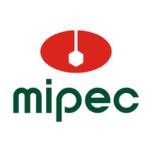- Hotline: 024 37544196
- vkhcnxd@ibst.vn
- Đăng nhập
- Đăng ký
-

- Giới thiệu
- Tin tức
- Phục vụ QLNN
- KH & CN
- Đào tạo
- Đào tạo tiến sỹ
- Đào tạo, tập huấn theo chuyên đề
- Hội nghị Khoa học
- Hội nghị khoa học quốc tế 2023
- Hội nghị khoa học Cán bộ trẻ lần thứ XVI
- Hội nghị khoa học Cán bộ trẻ lần thứ XV
- Hội nghị khoa học Cán bộ trẻ lần thứ XIV
- Hội nghị khoa học Cán bộ trẻ lần thứ XIII
- Hội nghị khoa học Cán bộ trẻ lần thứ XII
- Hội nghị khoa học Cán bộ trẻ lần thứ XI
- Hội nghị khoa học Cán bộ trẻ lần thứ X
- Hội nghị khoa học Cán bộ trẻ lần thứ IX
- Hội nghị khoa học Cán bộ trẻ lần thứ VIII
- Hội nghị khoa học cán bộ trẻ lần thứ XVII
- Thí nghiệm/Chứng nhận
- Tư vấn
- Thi công
- Sản phẩm
- Tạp chí
- Hỏi - Đáp































